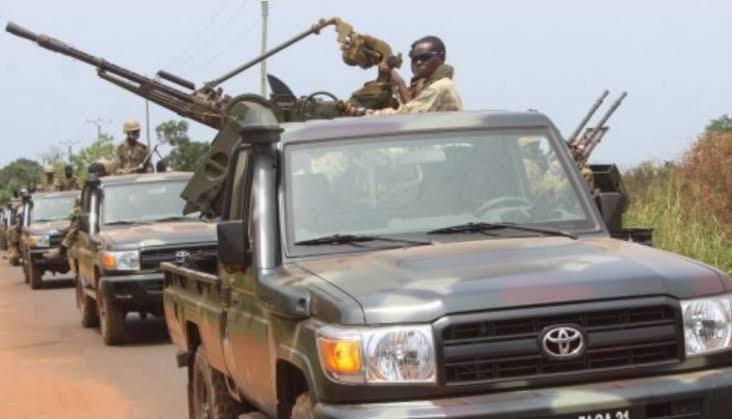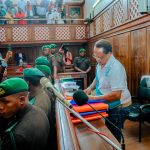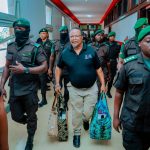
The African Union’s conflict resolution body was set to convene Friday to discuss the war in northern Ethiopia and looming peace talks aimed at ending nearly two years of bloodshed.
The 15-member Peace and Security Council said it would be briefed during a morning session by AU special envoy Olusegun Obasanjo, who is expected to mediate talks on the Tigray conflict in South Africa slated for Monday.
Ethiopia’s government said it had been invited to talks on October 24 by the AU and would participate. Tigray’s rebel leaders have only reiterated their committment to the AU-led peace process.
International pressure for a halt to violence in Tigray has mounted since the AU failed earlier this month to bring the warring sides to the negotiating table.
Fighting resumed in August, shattering a truce and halting aid into Tigray, a region of six million that lacks food, medicine and other life-saving essentials.
In recent weeks, combat has intensified as Ethiopian forces and their Eritrean allies have captured a string of towns in embattled Tigray, sending civilians fleeing.
The government this week vowed to seize airports and other federal sites from rebel control, spurring alarm for civilians and aid workers trapped in the warzone, and international calls for a ceasefire.
The AU session comes as the UN Security Council prepares to meet Friday to discuss the worsening violence.
US State Department spokesman Ned Price on Thursday said the UNSC and AU meetings “demonstrate the international community’s great concern about the situation” and the need for violence to stop.
He also renewed calls for a resumption of humanitarian aid to Tigray, and the withdrawal of Eritrean troops from Ethiopia.
The Peace and Security Council’s last meeting on Tigray was in early August before major combat resumed, said the AU-focused Amani Africa think on Friday.
The AU was “widely perceived as responding inadequately to this situation” but had been “working hard” to ensure the peace talks got underway next week, the think tank wrote in a briefing note.
The aborted talks earlier this month were to be mediated by Obasanjo supported by South Africa’s former deputy president Phumzile Mlambo-Ngcuka and former Kenyan president Uhuru Kenyatta.
Logistical problems were blamed for that meeting never taking place.
The conflict began in November 2020 when Prime Minister Abiy Ahmed sent troops into Tigray after accusing the region’s ruling party, the Tigray People’s Liberation Front (TPLF), of attacking federal army camps.
The TPLF dominated Ethiopia’s ruling political alliance for decades before Abiy took power in 2018 and sidelined the party.






